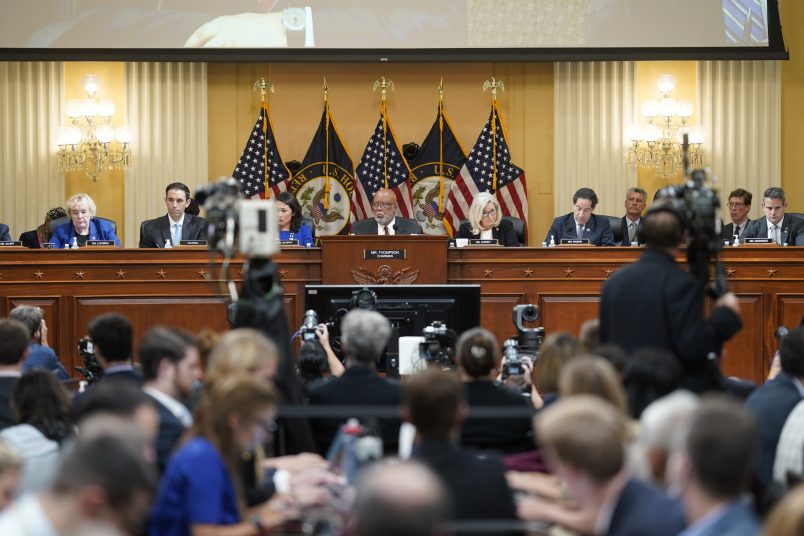On Sunday, John Eastman — one of the key architects of Donald Trump’s efforts to overturn the 2020 presidential election — complied with a federal district judge’s order and turned in eight emails to the House select committee investigating the Jan. 6 attack. But as he turned them in, he also asked committee members to refrain from looking at the documents till he got a chance to file an appeal for the judge’s order.
In a letter to Eastman, a lawyer for the Jan. 6 committee, which has been fighting to get the records for months, told Eastman that it was too late — the committee had already examined the documents. So, Eastman filed another appeal, this time asking the 9th Circuit Court of Appeals to stop the select committee from further examining the records, and to make the committee return or destroy them.
On Tuesday, the select committee weighed in on Eastman’s appeal and asked the court to hold its stance.
“This Court should not alter the status quo and order a Congressional committee to return and disregard material that it received due to compliance with a court order,” wrote Douglas Letter, general counsel to House Representatives.
“Dr. Eastman had nine days to seek relief from this Court,” Letter continued. “He nevertheless waited until the day before his production deadline to act, filing a flurry of last minute requests to resolve an emergency of his own making—and waited until after the production deadline to file a proper request for relief with this Court.”
The dispute comes after the district court judge found that the eight emails in question may be evidence of a crime committed by the former president, exempting them from attorney-client privilege.
According to the U.S. District Court Judge David Carter — who ordered Estman to release the documents — the emails “demonstrate an effort by President Trump and his attorneys to press false claims in federal court for the purpose of delaying the January 6 vote” and indicate that a “primary goal” of filing lawsuits was “to delay or otherwise disrupt” the congressional vote to confirm the 2020 presidential election.
The Jan. 6 committee also argued in its response to Eastman’s appeal that the committee should not have their access to the documents revoked because Eastman and his lawyers misplanned their next move. Court documents show that the Eastman team filed their appeal on Oct. 27, eight days after the district court’s order and one day before Eastman’s deadline to turn the documents in.
“Besides the grave Constitutional concerns, such an order is simply not warranted to save Dr. Eastman from his own litigation missteps,” wrote Letter. “Dr. Eastman provided no explanation to the district court as to why the nine days between the district court’s order and its deadline for production had been insufficient for him to have obtained this Court’s review of a stay motion.”



